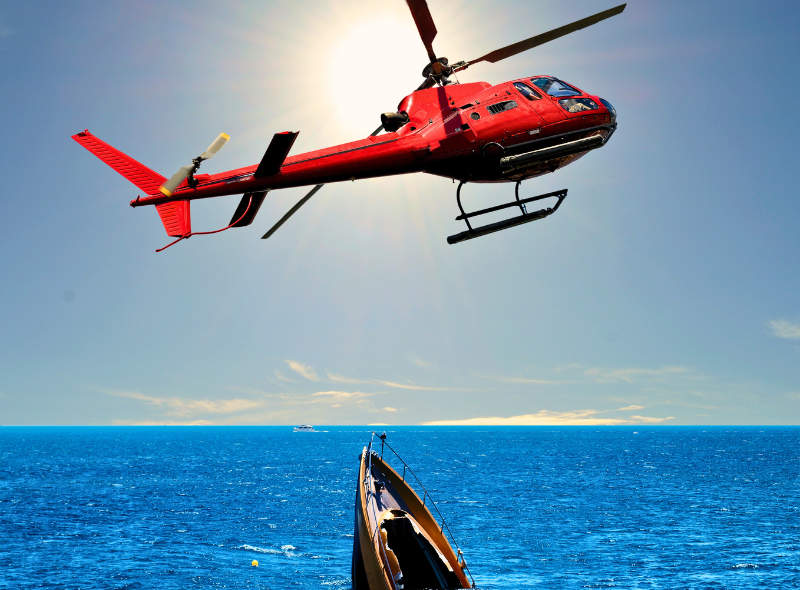When summer heats up along the Gulf Coast, the water becomes a playground for everyone. Locals and tourists alike take to the waves—jet skis zip across the surf, fishing boats dot the horizon, and pontoons and yachts cruise leisurely from Bay St. Louis to Gulf Shores. This seasonal rush to the water is part of what makes Gulf Coast summers so special.
But there’s a flip side to this aquatic paradise. More boats mean more accidents—often with serious consequences. If you find yourself caught in the aftermath of a boating mishap, understanding liability isn’t just helpful—it’s essential. At Christopher Holt Law (christopherholtlaw.com), we’ve seen how quickly a perfect day on the water can turn into a legal nightmare.
When Fun Turns to Trouble: Common Causes of Boating Accidents
Boating accidents rarely fit the dramatic Hollywood stereotype of high-speed collisions. The reality is often more mundane but no less dangerous:
- A first-time captain who doesn’t understand right-of-way rules
- A few too many beers that impair reaction time
- An engine that suddenly fails in a crowded channel
- A boat taking a turn too fast, throwing passengers overboard
- A sudden squall that reduces visibility to near zero
- Someone ignoring no-wake zones or navigation markers
- Holiday weekends when waterways become nautical traffic jams
Identifying exactly what happened is the first crucial step in determining who’s legally responsible.
Who Might Be on the Hook? Understanding Liability
When we meet with clients at christopherholtlaw.com, one of the first questions is often about who bears responsibility. The answer isn’t always straightforward:
The Person Behind the Wheel
The boat operator usually faces the most immediate scrutiny. Were they speeding? Drinking? Following navigation rules? Their actions—or lack thereof—often form the foundation of liability claims.
The Person Who Owns the Boat
Even owners who weren’t onboard during the accident aren’t automatically in the clear. If you hand your keys to someone who’s clearly inexperienced or impaired, you could be found negligent for entrusting your vessel to them.
Other Boaters on the Water
Many accidents involve multiple vessels, creating complex questions of shared responsibility. Who had the right of way? Did someone fail to keep a proper lookout? These questions become crucial in determining liability.
Those Who Built or Maintained the Boat
When mechanical failures contribute to accidents, liability may extend to manufacturers or service companies. That steering system that suddenly locked up or the engine that failed at a critical moment could point to product liability issues.
Companies That Put You on the Water
Gulf Coast marinas are lined with rental companies eager to get tourists on the water. If they sent you out without proper safety equipment, skipped important safety instructions, or rented you a poorly maintained vessel, they may bear responsibility for what followed.
The Crucial First Steps After an Accident
If you’re involved in a boating accident, what you do next matters tremendously:
- Call for help immediately if anyone is hurt
- Report the incident to the Coast Guard or local marine patrol (this isn’t just smart—it’s often legally required)
- Document everything—take photos of damage, injuries, and conditions; collect names and numbers of witnesses
- Watch what you say—comments that might seem innocent can be interpreted as admissions of fault
- Reach out to Christopher Holt Law (christopherholtlaw.com) to discuss your situation before making statements to insurance companies
Navigating the Legal Waters: Maritime vs. State Law
One aspect that makes boating accidents particularly complex is the question of which laws apply. Was your accident in navigable waters where federal maritime law holds sway? Or in state waters where different regulations might apply?
This distinction isn’t just academic—it can significantly impact your case, affecting everything from liability standards to available damages and filing deadlines. At christopherholtlaw.com, we understand these nuances and how they might affect your specific situation.
Why Professional Legal Guidance Is Your Best Compass
Boating accidents frequently involve overlapping jurisdictions, multiple potentially responsible parties, and often serious injuries. The legal waters get murky fast.
Whether you were driving the boat, riding as a passenger, or affected as a third party, having a Gulf Coast attorney who understands both maritime and state liability laws can make all the difference in securing the compensation you deserve.
Don’t Let Summer Memories Become Legal Nightmares
If you or someone you care about has been injured in a boating accident along the Gulf Coast, time is not on your side. Evidence fades, witnesses become hard to locate, and legal deadlines approach faster than you might expect.
You could be entitled to significant compensation for medical expenses, lost income, and pain and suffering. Contact Christopher Holt Law at christopherholtlaw.com for a free, no-obligation consultation. We’ll help you chart a course through the legal challenges ahead and fight for the compensation you deserve.
Your focus should be on recovery—let us handle the legal navigation.


Recent Comments